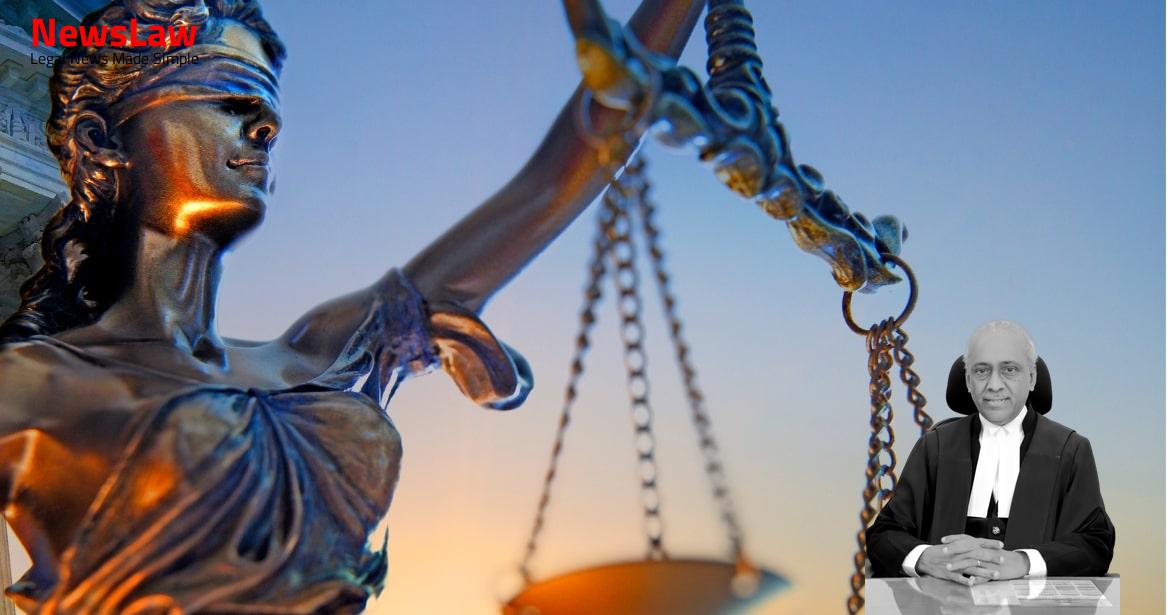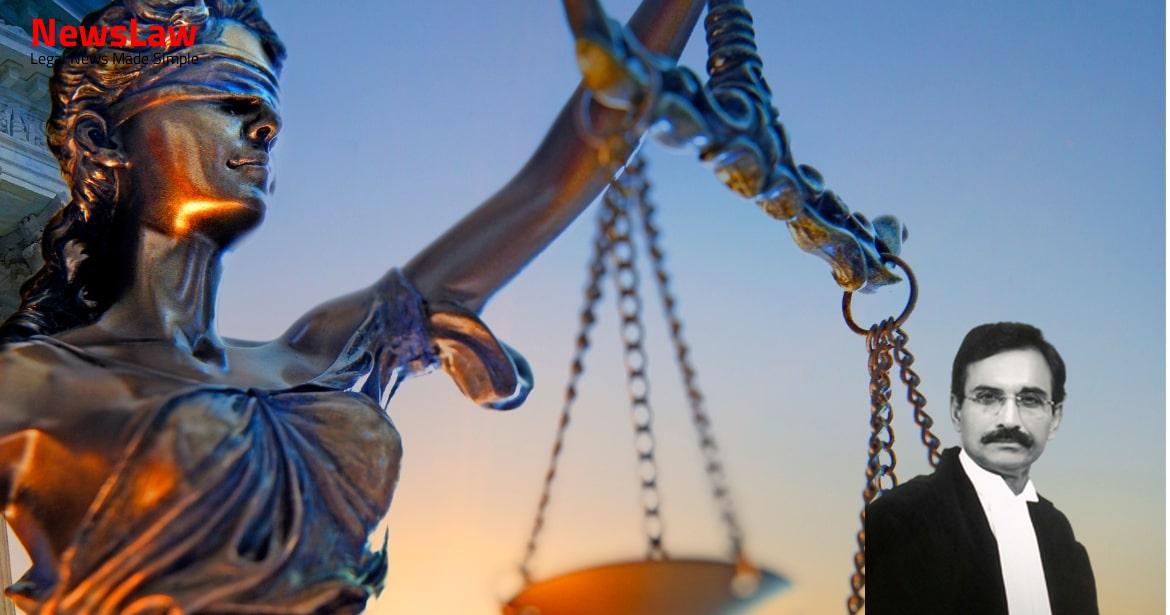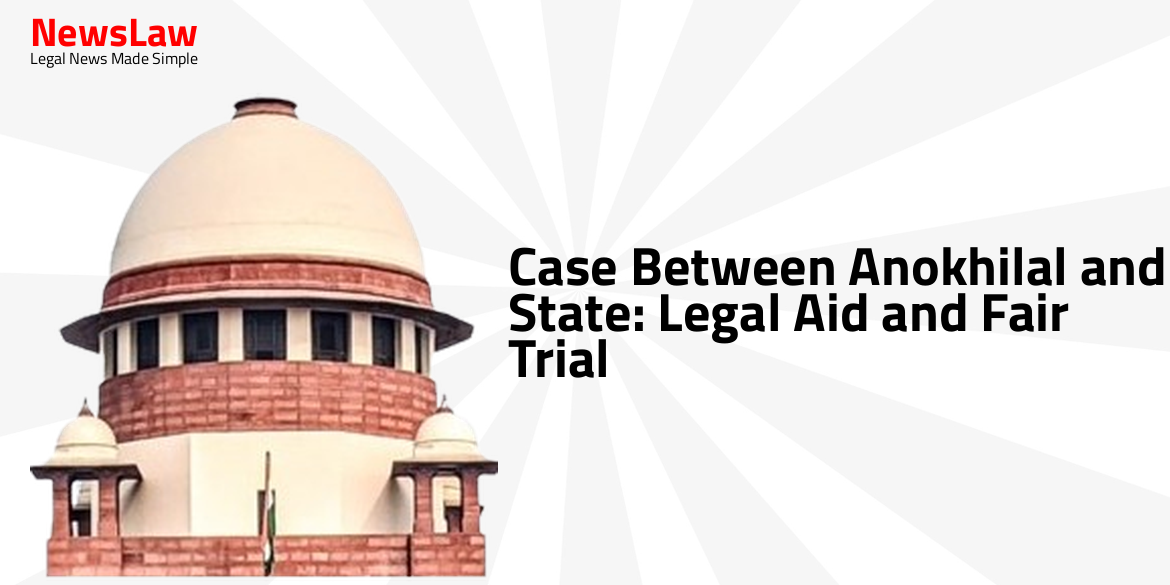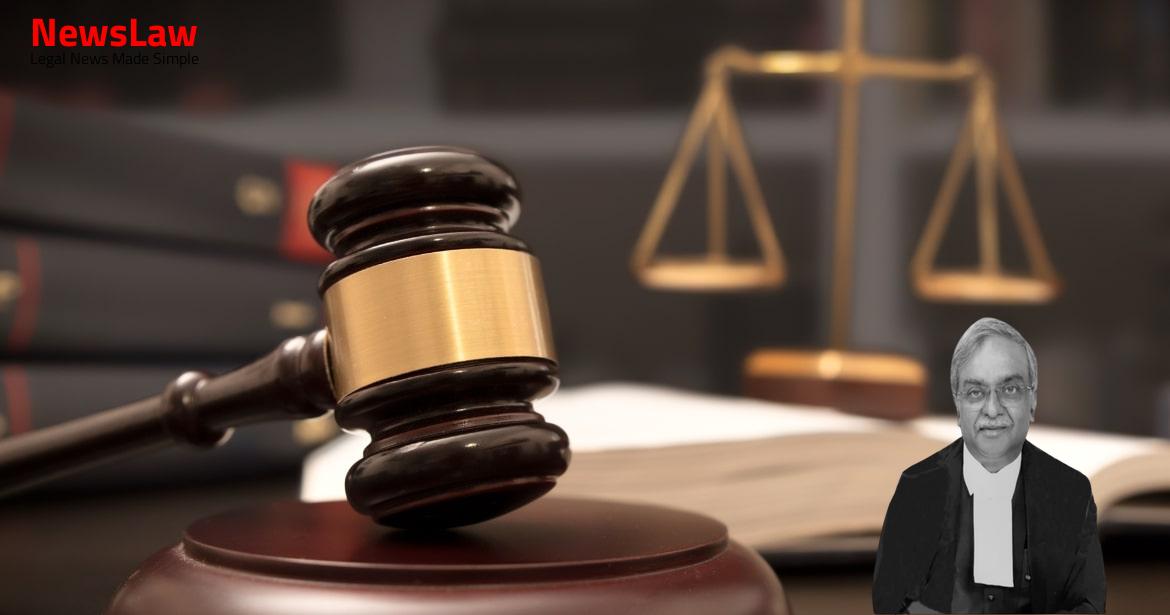Explore a critical legal analysis by the court regarding the interpretation of Section 167(2) of the Cr.P.C. amidst the challenges posed by the COVID-19 pandemic. The court’s in-depth examination focuses on balancing the protection of personal liberty with adherence to procedural timelines. Stay tuned to unravel the complexities of this significant legal issue.
Facts
- The appellant was arrested on 21.02.2020 and lodged in Central Prison, Trichy.
- The bail application under Section 439 was rejected by the trial court on 30.04.2020.
- The appeal challenges the judgment of Madurai Bench of Madras High Court dated 11.05.2020 in Crl.OP(MD) No.5296 of 2020, where the bail application was dismissed.
- The appellant filed an application for bail after being in judicial custody for over 73 days.
- The High Court of Madras referred to a Supreme Court order dated 23.03.2020 in the decision.
- The High Court held that the Supreme Court order supersedes all provisions on limitation periods until further orders.
Also Read: Enhancing Compensation and Modifying Sentences: A Legal Analysis
Issue
- The only issue in this appeal is whether the appellant is entitled to bail due to non-submission of the charge sheet within the prescribed period by the prosecution.
- The question revolves around the application of section 167(2) of the Code of Criminal Procedure.
- The decision will be based on whether the prosecution’s failure to submit the charge sheet within the specified time frame warrants the grant of bail to the appellant.
Also Read: Transfer of Writ Petitions for Chartered Accountants’ Tax Audit Guidelines
Arguments
- Shri Sidharth Luthra, learned senior counsel for the appellant, argues that the High Court erred in its interpretation of an earlier judgment in Settu versus The State, where it was held that the order of the Court dated 23.03.2020 did not extend the period for submission of the charge sheet as prescribed under Section 167(2) of the Cr.P.C.
- The provisions of Section 167(2) are crucial for the protection of personal liberty, and if the charge sheet is not filed within the specified period, the appellant is entitled to default bail.
- It is contended that the order of this Court dated 23.03.2020 should not be construed as extending the time for the prosecution to submit the charge sheet.
- Learned counsel for the State supports the impugned judgment
- Due to difficulties in carrying out the investigation, charge sheet could not be filed in the present case
- Appellant not entitled to benefit from Section 167(2) due to the pandemic of Covid-19
Also Read: Analyzing Interference with Acquittal in Legal Conviction Case
Analysis
- The order dated 23.03.2020 extended the limitation for filing petitions/applications/suits/appeals/other proceedings due to COVID-19 challenges faced by litigants.
- The purpose was to prevent lawyers/litigants from physically coming to file proceedings in courts/tribunals.
- The law of limitation bars the remedy but not the right, and the order aimed to protect litigants’ rights from becoming time-barred.
- The interpretation by the learned Single Judge in the impugned judgment was erroneous in considering restrictions during lockdown affecting the right to default bail.
- The order did not eclipse the time period in Section 167(2) of the Cr.P.C., nor did it intend to curtail any provisions protecting personal liberty.
- Courts including High Courts and the Supreme Court ought to follow principles of Comity of Courts.
- The objective of the order was to ensure litigants could still access legal remedies despite physical limitations during the pandemic.
- The proviso in Section 167 allows the accused to be released on bail if they furnish the compulsory bail, ensuring the completion of the investigation within a specified period.
- The right to be released on bail after the maximum period of detention can only be denied if the accused does not furnish bail, as per Explanation I.
- The proviso to sub-section (2) of Section 167 aims to prevent the indefinite prolonging of investigations and safeguard the liberty of citizens.
- The right for default bail is considered an indefeasible right that cannot be frustrated by the prosecution, as established in previous court cases.
- The legislative history of Section 167 was examined in the Rakesh Kumar Paul case, emphasizing the importance of expeditious investigation and personal liberty.
- Section 167 originally had a time limit of 60 days, which was later amended in 1978 to include specific provisions for extending detention in certain cases.
- The Code of Criminal Procedure, 1973 implemented recommendations to increase the time limit for investigation following the Law Commission’s Forty-first Report.
- Section 167 grants the power to detain a person in custody during investigations before the Magistrate’s formal enquiry begins, with specific provisions for the duration of detention.
- The consequences of exceeding the prescribed detention period are outlined in the proviso to sub-section (2) of Section 167, ensuring the release of the accused on bail if bail is furnished.
- The Presidential orders dated June 27, 1975, and January 8, 1976, unconditionally suspend the enforceability of the rights conferred by Articles 14, 19, 21, and 22 of the Constitution.
- Amendment of Article 359 of the Constitution by the Forty-fourth Constitutional Amendment Act, 1978.
- Recognition of the right to life before the Constitution and its inclusion in Article 21 as an essential fundamental right.
- The principle that no one shall be deprived of life or liberty without the authority of law is rooted in the consideration of the priceless nature of life and liberty, requiring sanction of laws.
- The right to life is not solely dependent on Article 21 of the Constitution.
- Judicial discipline dictates that a coordinate bench should not take a contrary view to an earlier judgment.
- The right to life and personal liberty existed prior to the Constitution and continued under Article 372.
- The power of the Court to issue a Writ of Habeas Corpus is fundamental to the rule of law.
- The orders suspending fundamental rights are not limited by conditions and cannot be frustrated by prosecution or courts.
- The right to life and liberty is inalienable and cannot be encroached upon without the authority of law.
- The orders suspend the enforcement of fundamental rights under Articles 19, 21, and 22.
- Decisions taken against the principles of law established by coordinate benches are erroneous.
- The lockdown announced by the Government of India cannot be equated to a state of Emergency.
- Presidential orders bar the enforcement of personal liberty rights through writ petitions under Article 226.
- The rule of law prohibits encroachments on life and personal liberty without legal authority.
- Life, liberty, and personal security are inherent rights not bestowed by the state.
- Presidential orders limit the enforcement of fundamental rights, including personal liberty and freedom.
- The learned Single Judge’s course of action was disapproved
- The discussions led to the decision to allow
Decision
- Benefit of direction from the Hon’ble Supreme Court made on 23.03.2020 in this appeal
- Set aside the judgment of the learned Single Judge
- Direct the appellant to be released on default bail
- Subject to a personal bond of Rs. 10,000/- with two sureties to the satisfaction of the trial court
Case Title: S. KASI Vs. STATE THROUGH THE INSPECTOR OF POLICE TAMIL NADU (2020 INSC 439)
Case Number: Crl.A. No.-000452-000452 / 2020



